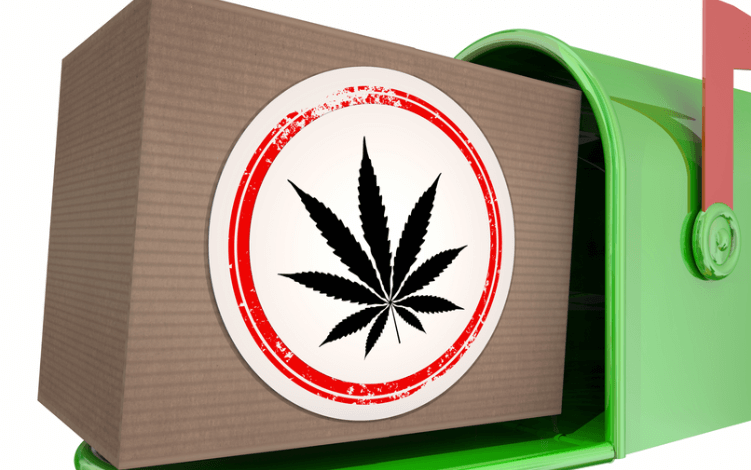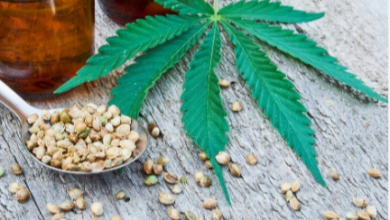Does Usps Ship Cbd

The question of whether USPS ships CBD products is multifaceted, hinging on legal definitions and regulatory compliance. While the postal service permits the shipment of hemp-derived CBD containing no more than 0.3% THC, there are stringent guidelines that must be followed, including specific packaging and labeling protocols. Additionally, state regulations may influence shipping logistics, presenting challenges for both consumers and businesses. To navigate this complex landscape effectively, one must consider not only the current regulations but also the potential implications of future changes. What does this mean for the evolving CBD market?
Overview of CBD and USPS
The United States Postal Service (USPS) has established specific guidelines regarding the shipment of cannabidiol (CBD) products, which are derived from hemp and have gained significant popularity for their potential therapeutic benefits.
As the CBD market trends continue to evolve, USPS delivery challenges, such as compliance with regulations and package integrity, play a crucial role in ensuring safe and legal distribution of these products.
See also: Cbc Industries
Legal Status of CBD
Understanding the legal status of CBD is essential for both consumers and businesses, as it varies significantly across different states and is influenced by federal regulations.
CBD legalities can create confusion, with some states imposing strict regulations while others embrace its use.
Staying informed about state regulations is crucial for navigating this evolving landscape and ensuring compliance in a marketplace that craves freedom and choice.
USPS Shipping Regulations
Understanding USPS shipping regulations is crucial for anyone considering the shipment of CBD products.
This includes acknowledging the legal status of CBD, adhering to specific packaging and labeling requirements, and being aware of restricted shipping areas.
Navigating these regulations ensures compliance and facilitates a smooth shipping process.
Legal Status of CBD
CBD’s legal status in the United States primarily hinges on its derivation from hemp and compliance with federal regulations, particularly those outlined in the 2018 Farm Bill.
Understanding CBD legalities is crucial for consumers and businesses alike, as it shapes CBD market trends.
As the landscape evolves, remaining informed about these regulations is essential for navigating the burgeoning market confidently.
Packaging and Labeling Requirements
When shipping CBD products via USPS, adherence to specific packaging and labeling requirements is essential to ensure compliance with federal regulations and to facilitate safe delivery.
Utilize appropriate packaging materials that protect the contents while meeting USPS standards.
Furthermore, ensure that your labels adhere to labeling standards, clearly indicating product information and compliance with legal guidelines, thus promoting transparency and consumer trust.
Restricted Shipping Areas
Certain geographic areas impose restrictions on the shipment of CBD products through USPS, necessitating careful consideration of these regulations to ensure compliance and successful delivery.
These restricted areas can create significant shipping challenges for businesses and consumers alike.
Understanding local laws and USPS guidelines is crucial for navigating these complexities, ensuring that products reach their intended destinations without legal complications.
Types of CBD Products Allowed
When considering the types of CBD products permitted for shipping via USPS, it is essential to focus on hemp-derived CBD items.
These products must adhere to specific THC content regulations, ensuring they contain no more than 0.3% THC by dry weight.
Understanding these guidelines is crucial for compliance and successful shipping.
Hemp-Derived CBD Products
Hemp-derived CBD products encompass a variety of forms, including oils, tinctures, capsules, edibles, and topicals, each offering unique benefits and uses for consumers.
These products capitalize on the myriad hemp benefits, promoting wellness and natural relief.
With responsible CBD sourcing, consumers can trust the quality and efficacy of these products, empowering them to explore the potential of hemp in their daily lives.
THC Content Regulations
To comply with federal regulations, CBD products must contain less than 0.3% THC, ensuring they are non-psychoactive and legally permissible for shipment across state lines.
This THC content standard necessitates rigorous THC testing to maintain regulatory compliance.
Consumers seeking freedom in their wellness choices can confidently source compliant CBD products, knowing they adhere to established legal guidelines for safe distribution.
Packaging and Labeling Requirements
Proper packaging and labeling of CBD products is crucial for compliance with USPS regulations and to ensure consumer safety.
Utilizing appropriate packaging materials protects the product during transit, while adhering to established labeling standards provides essential information to consumers.
Clear labels that include ingredient lists, potency, and usage instructions empower consumers, fostering trust and transparency in the burgeoning CBD market.
Potential Shipping Restrictions
While adhering to packaging and labeling requirements is fundamental, understanding the potential shipping restrictions on CBD products is equally important for businesses and consumers alike.
Different shipping methods may be subject to varying regulatory challenges, impacting the ability to ship CBD legally.
Awareness of these restrictions is crucial in navigating the complexities of CBD distribution, ensuring compliance while maximizing access to this burgeoning market.
Alternatives to USPS
Exploring alternatives to USPS for shipping CBD products can provide businesses with more flexibility and potentially fewer regulatory hurdles.
FedEx options offer reliable and efficient services, while UPS services are known for their extensive tracking capabilities and delivery networks.
Tips for Safe Shipping
Ensuring the safe shipping of CBD products requires meticulous attention to packaging, labeling, and compliance with both federal and state regulations.
Adhering to shipping best practices is essential, including using discreet packaging and accurate labeling.
Familiarizing yourself with CBD compliance guidelines will help avoid legal pitfalls and ensure a smooth shipping process, allowing you to confidently share your products with a broader audience.
Future of CBD Shipping Regulations
As the landscape of CBD shipping continues to evolve, understanding the potential future regulations will be key for businesses aiming to navigate this complex market effectively.
With anticipated market growth, companies must prioritize consumer education to ensure compliance and foster trust.
Staying informed about regulatory changes will empower businesses to adapt swiftly, ultimately enhancing customer experience and promoting a thriving, responsible CBD marketplace.
Conclusion
In the evolving landscape of CBD shipping, the juxtaposition of legal compliance and market opportunity creates a dynamic environment for businesses.
As USPS facilitates the movement of hemp-derived CBD products, the balance between innovation and regulation remains critical.
Ensuring adherence to stringent guidelines while navigating state-specific restrictions paints a complex picture.
The future of CBD shipping regulations is poised to shift, potentially transforming the marketplace and redefining the pathways through which these products reach consumers.




